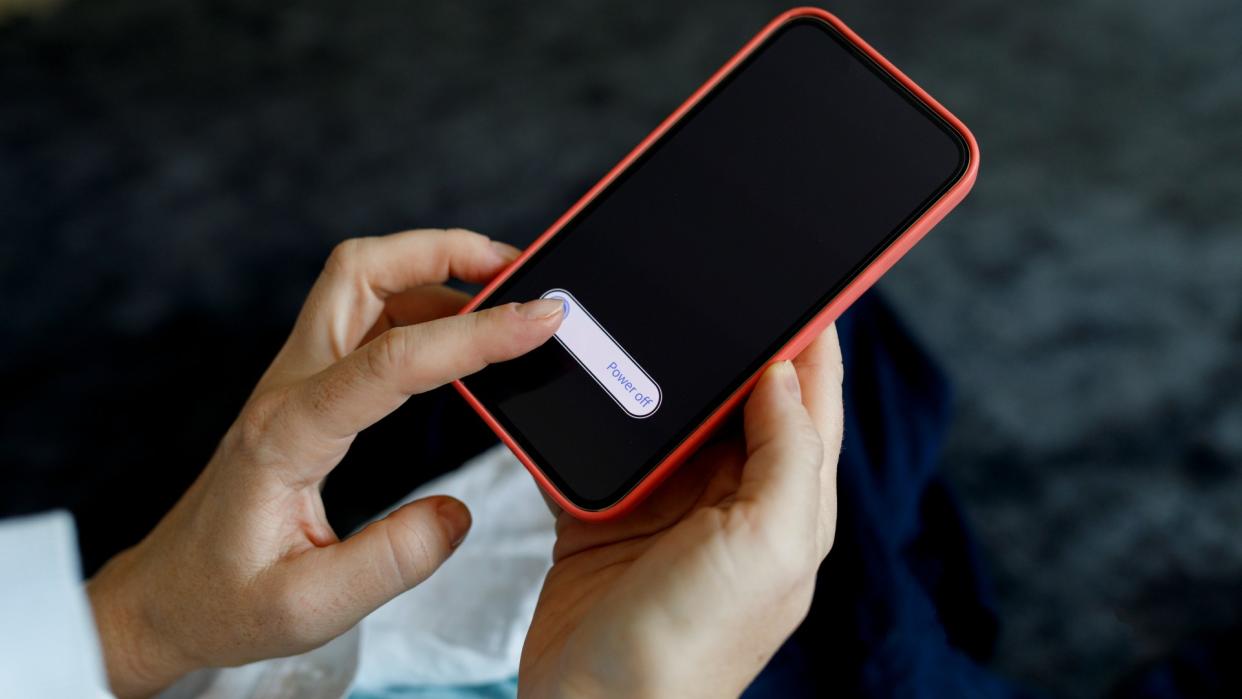Addicted to screens? 4 tips for a digital detox that sticks.

Many of us spend much of our time vacillating between screens, both at work and in our personal lives. Smartphones have become as ubiquitous as a wallet and a set of keys, and social media dominates every corner of entertainment and lifestyle content. Technology is not inherently bad, but it may be time for a break when it becomes disruptive. Here are some tips for a successful digital detox.
Stay in control
A key to fixing our relationships with devices is first to adjust how we think about our agency, Oliver Burkeman, the author of the time-management book "Four Thousand Weeks," said to The New York Times. He challenges the prevailing narrative that we are "sitting there, rapturously concentrating" when our attention is "snatched away by the evil talons of an Instagram feed," the Times said. But that is not what happens to most people. In reality, Burkeman said, people usually seek refuge in their phones to avoid uncomfortable feelings like boredom.
It is important to remember "the idea of distraction as starting inside us, and not simply being a case of evil Silicon Valley companies stealing away our focus," Burkeman said. That way, you remain in control. "When the uncomfortable emotions arise, we can recognize them, and we’re better equipped to resist," the Times said
Set realistic goals
You do not have to quit screens cold turkey to reap the benefits of a digital detox. Dumping all your devices may be unrealistic for your personal life. Instead, your goals should align realistically with your lifestyle. A digital detox can be anything you want, CNET said. "It can be refraining from using any type of technology, disconnecting from social media, or just limiting daily screen time." For some of us, laptop and phone screens are integral to our workday, so completely disconnecting is not ideal. "Instead, you can opt to set screen time limits on your free time," CNET advised.
Taking it step-by-step can make the adjustment more manageable. "Start by designating a certain time each day that's tech-free — like while you're eating lunch," said Adam Alter, New York University professor and author of "Irresistible: The Rise of Addictive Technology and the Business of Keeping Us Hooked," to Health. After a week or so, many people are happy with the change, and "they go on to expand it."
Go old school
It can be helpful to revert to old-school entertainment, organization and communication methods. Doing so can help you eliminate the temptation of distraction without sacrificing your needs. "It can absolutely be helpful to downgrade from a smartphone if that is possible," social worker Jennifer Kelman said to Everyday Health. She said she relies on simple phones that cannot support apps with her children. "They have a simple call or text feature, and that's it," she said.
The same applies to analog clocks, rather than relying on our phones to track time and set alarms. Celeste Headlee, journalist and the author of the book "Do Nothing," said to The New York Times that she recently invested in a cuckoo clock. "Apps have been designed to steal our attention by encouraging us to lose track of the minutes that pass," she said. The hourly chiming of her clock causes her to pause and become aware of how much time she has spent on her devices. She also uses an hourglass to remind her that only a few minutes have passed so she will stay on task.
Figure out your triggers
For many, doomscrolling on social media has become engrained in their daily routine. So much so that seemingly innocuous behavior like drinking coffee or taking a lunch break can automatically make you reach for your phone. "You need to break the automaticity of that connection," Jessica Lipschitz, associate director of Brigham and Women’s Hospital Digital Behavioral Health and Informatics Research Program, said to GQ. The easiest solution is to delete the app from your phone. "That’s the lowest-hanging fruit," Lipschitz said. If that is not sufficient, you can block the websites on your computer.
If you are trying to spend less time on your devices, constant updates and notifications can be distracting. "If you're allowing yourself to get interrupted five times in a half an hour, you're never actually focused in that time," said Jesse Fox, head of the Ohio State University's Virtual Environment, Communication Technology, and Online Research Lab, said to Health. Turning off any notification you can live without is an easy way of eliminating a possible lure back to your phone.

